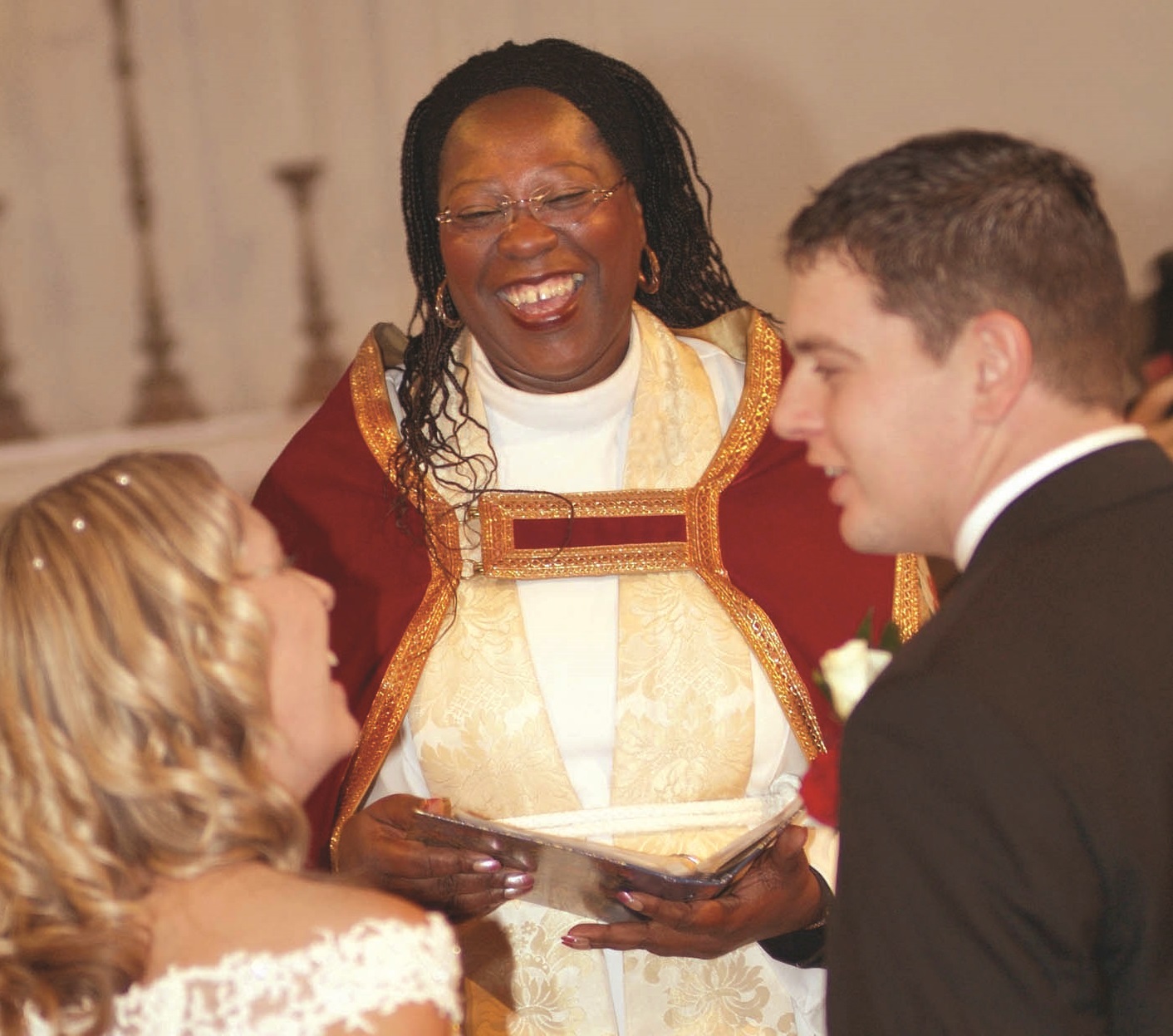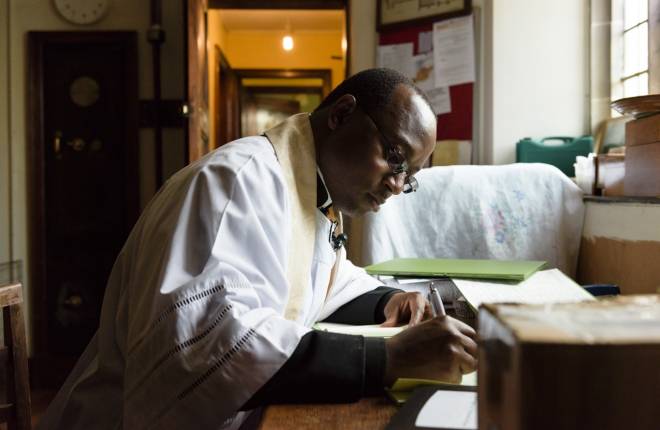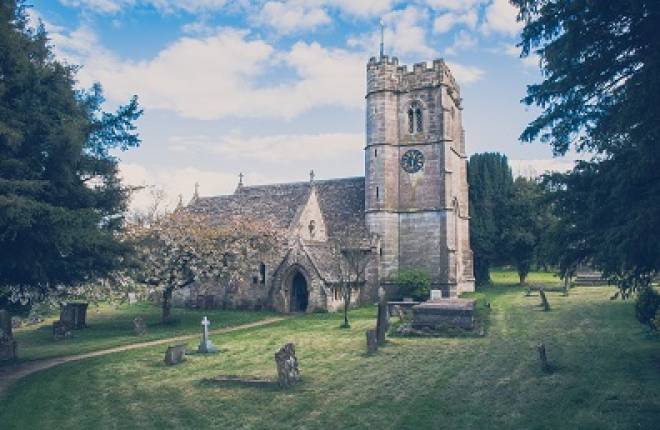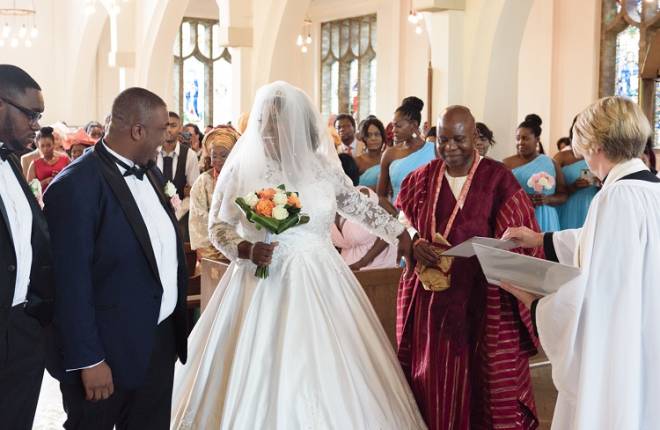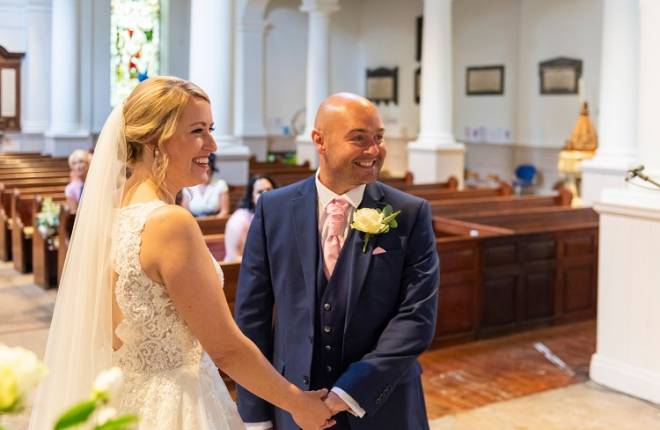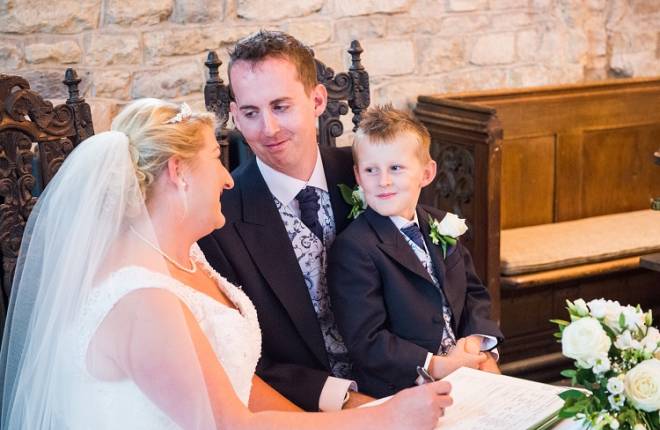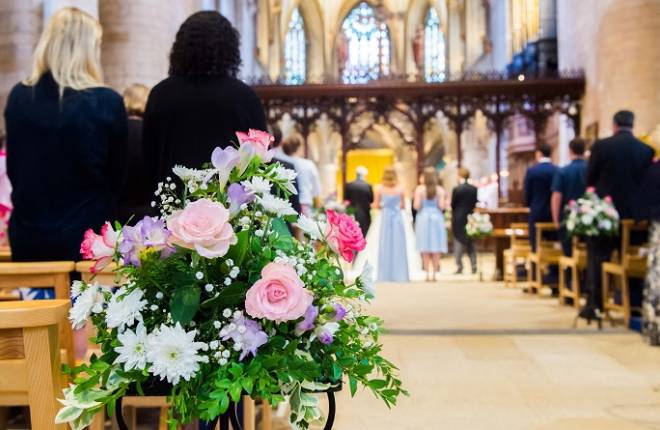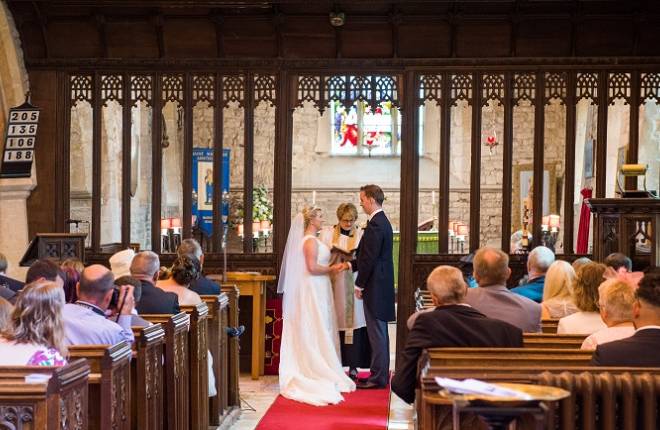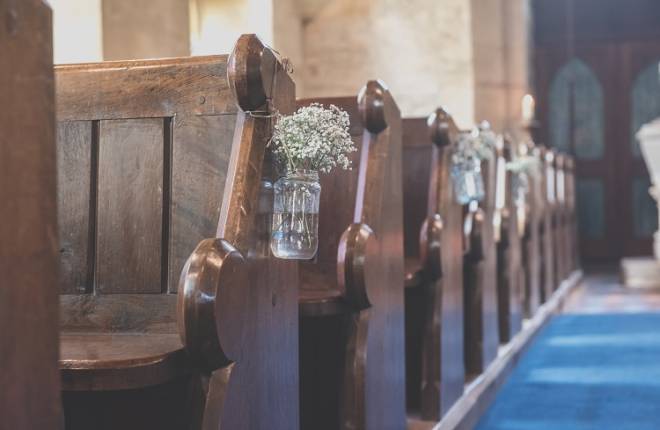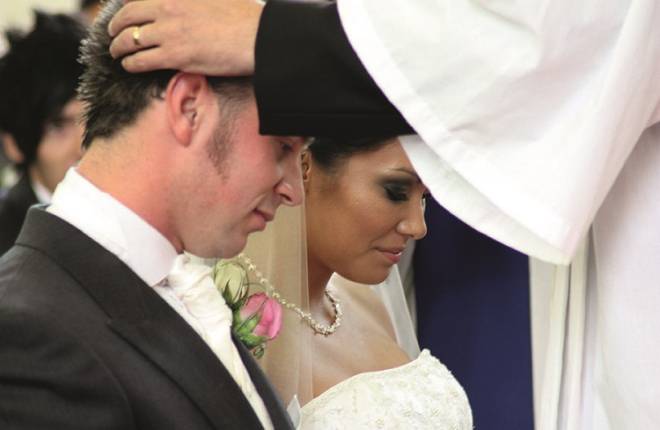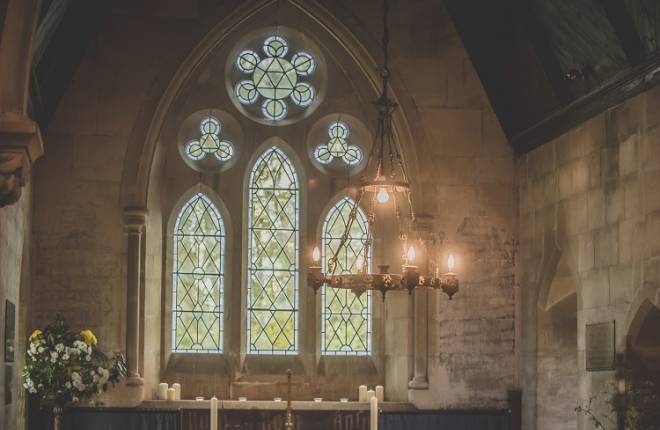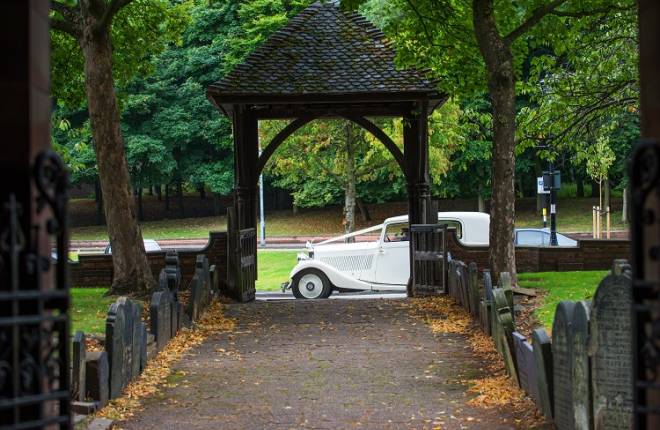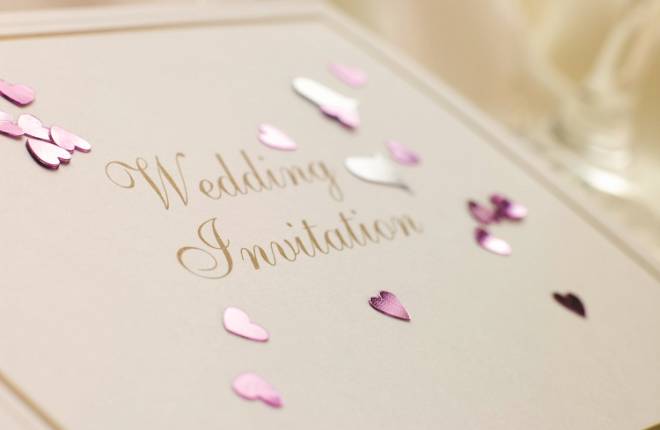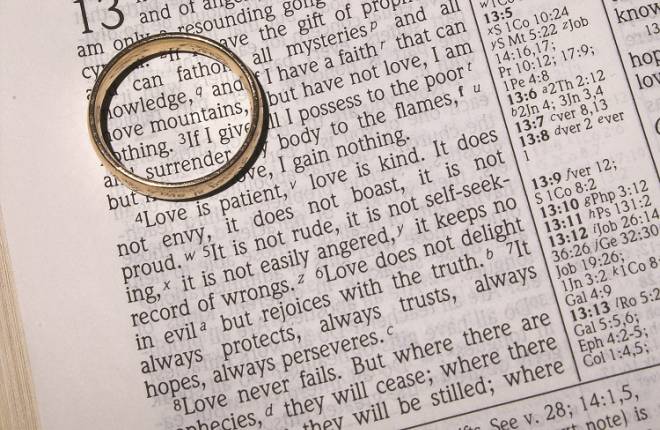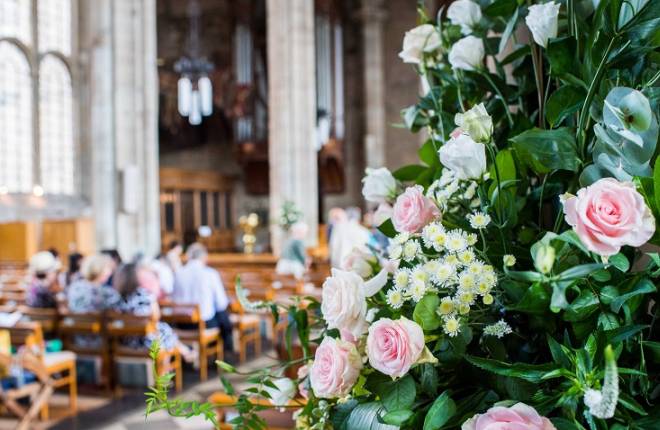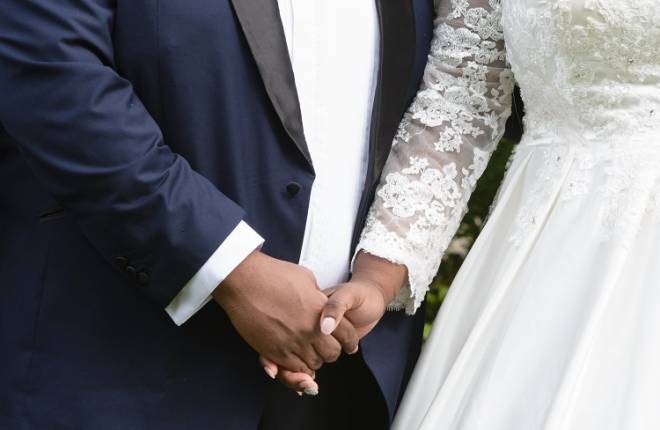The vicar’s job is to make you feel welcome and comfortable about your wedding day and to help you make decisions about the ceremony – they will have had lots of experience in making sure everything runs smoothly.
The first meeting
For the first meeting, there will be two main areas the vicar will want to cover:-
1. To get to know you
Vicars enjoy meeting people and getting to know them. When you marry in a church, you have the vicar’s personal, individual attention. If you haven’t met before, they’ll be interested in your story, how you came to be together, whether they might know any of your relatives and why you decided to get married in the church. The relationship with the vicar often goes well beyond the wedding day. It’s possible you could keep in touch with them for many years. They may even be part of other big occasions in your life, like christening your children.
2. To check all is well legally with your intention marry
There will be some forms to complete which are necessary for the vicar’s records and they will need to ask a few questions that confirm you’re free to marry and that you have a legally-recognised connection with the church. These details are really important to ensure your marriage will be legally sound.
At your first meeting, it will be useful for you to bring a passport if you both have one. This provides confirmation of your nationality, which the vicar requires. If you don’t have a passport, the vicar will let you know what other documents would be suitable alternatives.
If either of you are a national from a country that is outside the EEA, the vicar will advise you on applying for a Superintendent Registrar’s Certificate, now required for all Church of England marriages of non-EEA nationals.
If either of you are divorced, the vicar will need to see your decree absolute. If you have divorce in your background, the vicar has certain responsibilities in these circumstances and it will be something they will want to talk about in some detail. Every vicar will listen to you sensitively and in complete confidence. Read more about getting married in church after divorce.
Meeting again
After all the legal preparations have been arranged, the vicar will invite you to meet with them again to talk about your ceremony and what kind of service you’re hoping for. You may discuss music, hymns, Bible readings, additional readings if you’d like one, and anything else you’d like to include.
They may ask if you’d like to have the church’s organist and/or choir, whether you’d like the church to do the flowers, and whether you’d like to have the church bells rung. Now is the time to talk about how much your ceremony is likely to cost. Read more about the cost of church weddings.
The online Ceremony Planner is a great way to start thinking about some of these things and help you discuss your ideas with the vicar.
You might like to see the vicar in church too, if you can go to a few services before your wedding day. You’ll be able to see the church in use and get to know other people there too.

